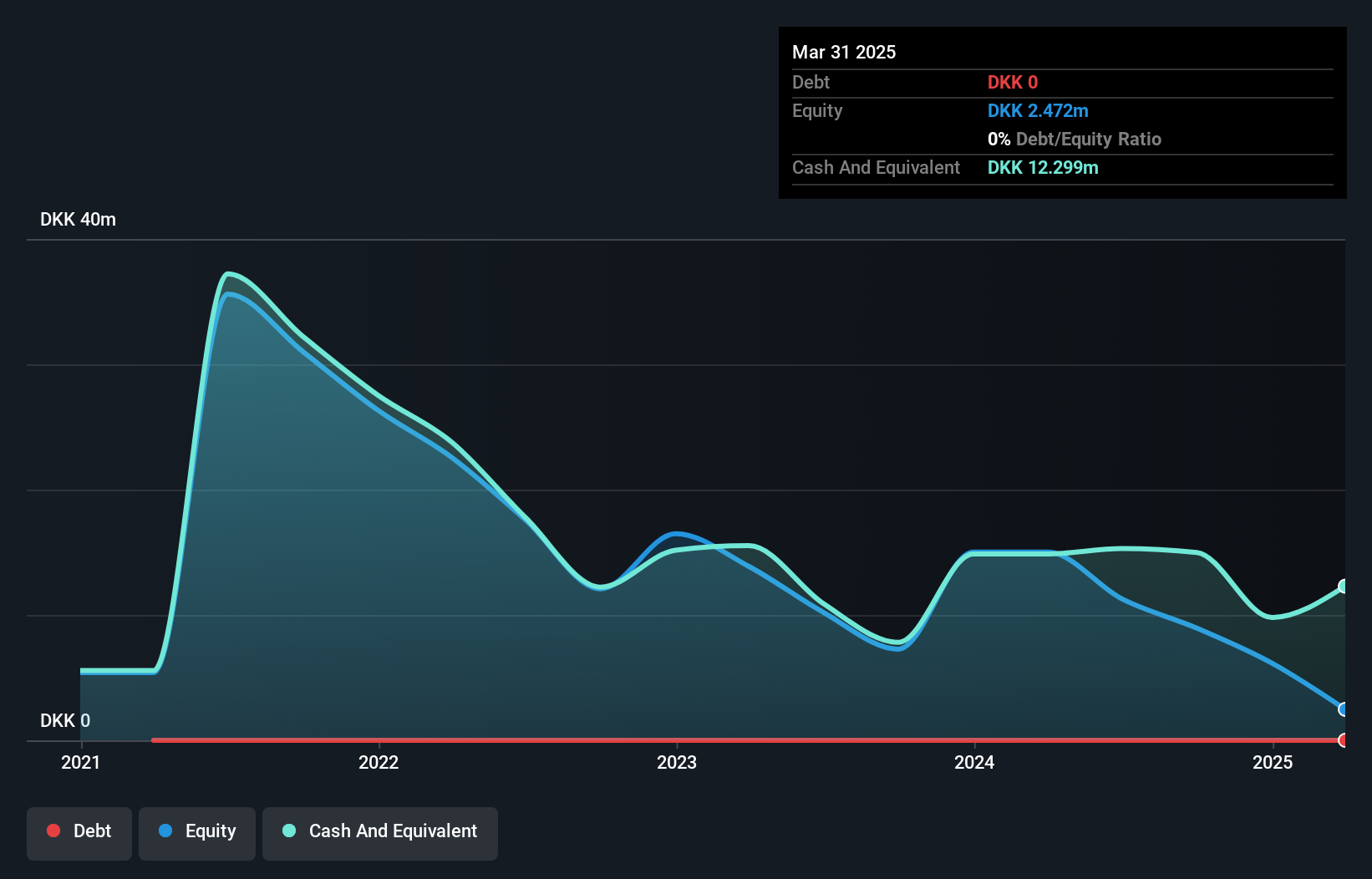We're Not Very Worried About Impero's (CPH:IMPERO) Cash Burn Rate
Just because a business does not make any money, does not mean that the stock will go down. For example, biotech and mining exploration companies often lose money for years before finding success with a new treatment or mineral discovery. But the harsh reality is that very many loss making companies burn through all their cash and go bankrupt.
Given this risk, we thought we'd take a look at whether Impero (CPH:IMPERO) shareholders should be worried about its cash burn. In this article, we define cash burn as its annual (negative) free cash flow, which is the amount of money a company spends each year to fund its growth. The first step is to compare its cash burn with its cash reserves, to give us its 'cash runway'.
When Might Impero Run Out Of Money?
A cash runway is defined as the length of time it would take a company to run out of money if it kept spending at its current rate of cash burn. When Impero last reported its March 2025 balance sheet in May 2025, it had zero debt and cash worth kr.12m. Looking at the last year, the company burnt through kr.6.1m. Therefore, from March 2025 it had 2.0 years of cash runway. Arguably, that's a prudent and sensible length of runway to have. You can see how its cash balance has changed over time in the image below.

Check out our latest analysis for Impero
How Well Is Impero Growing?
We reckon the fact that Impero managed to shrink its cash burn by 33% over the last year is rather encouraging. And considering that its operating revenue gained 24% during that period, that's great to see. We think it is growing rather well, upon reflection. Of course, we've only taken a quick look at the stock's growth metrics, here. You can take a look at how Impero has developed its business over time by checking this visualization of its revenue and earnings history.
How Hard Would It Be For Impero To Raise More Cash For Growth?
While Impero seems to be in a fairly good position, it's still worth considering how easily it could raise more cash, even just to fuel faster growth. Companies can raise capital through either debt or equity. Many companies end up issuing new shares to fund future growth. By comparing a company's annual cash burn to its total market capitalisation, we can estimate roughly how many shares it would have to issue in order to run the company for another year (at the same burn rate).
Since it has a market capitalisation of kr.183m, Impero's kr.6.1m in cash burn equates to about 3.3% of its market value. Given that is a rather small percentage, it would probably be really easy for the company to fund another year's growth by issuing some new shares to investors, or even by taking out a loan.
Is Impero's Cash Burn A Worry?
It may already be apparent to you that we're relatively comfortable with the way Impero is burning through its cash. For example, we think its cash burn relative to its market cap suggests that the company is on a good path. Its cash burn reduction wasn't quite as good, but was still rather encouraging! Based on the factors mentioned in this article, we think its cash burn situation warrants some attention from shareholders, but we don't think they should be worried. On another note, we conducted an in-depth investigation of the company, and identified 3 warning signs for Impero (2 shouldn't be ignored!) that you should be aware of before investing here.
If you would prefer to check out another company with better fundamentals, then do not miss this free list of interesting companies, that have HIGH return on equity and low debt or this list of stocks which are all forecast to grow.
New: AI Stock Screener & Alerts
Our new AI Stock Screener scans the market every day to uncover opportunities.
• Dividend Powerhouses (3%+ Yield)
• Undervalued Small Caps with Insider Buying
• High growth Tech and AI Companies
Or build your own from over 50 metrics.
Have feedback on this article? Concerned about the content? Get in touch with us directly. Alternatively, email editorial-team (at) simplywallst.com.
This article by Simply Wall St is general in nature. We provide commentary based on historical data and analyst forecasts only using an unbiased methodology and our articles are not intended to be financial advice. It does not constitute a recommendation to buy or sell any stock, and does not take account of your objectives, or your financial situation. We aim to bring you long-term focused analysis driven by fundamental data. Note that our analysis may not factor in the latest price-sensitive company announcements or qualitative material. Simply Wall St has no position in any stocks mentioned.
About CPSE:IMPERO
Impero
A Software-as-a-Service (SaaS) company, provides a compliance management platform.
Slight risk with mediocre balance sheet.
Similar Companies
Market Insights
Community Narratives



